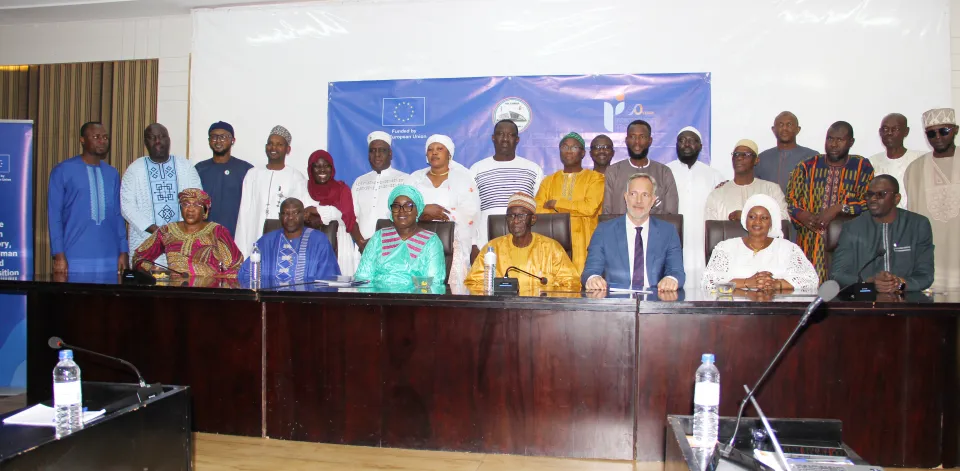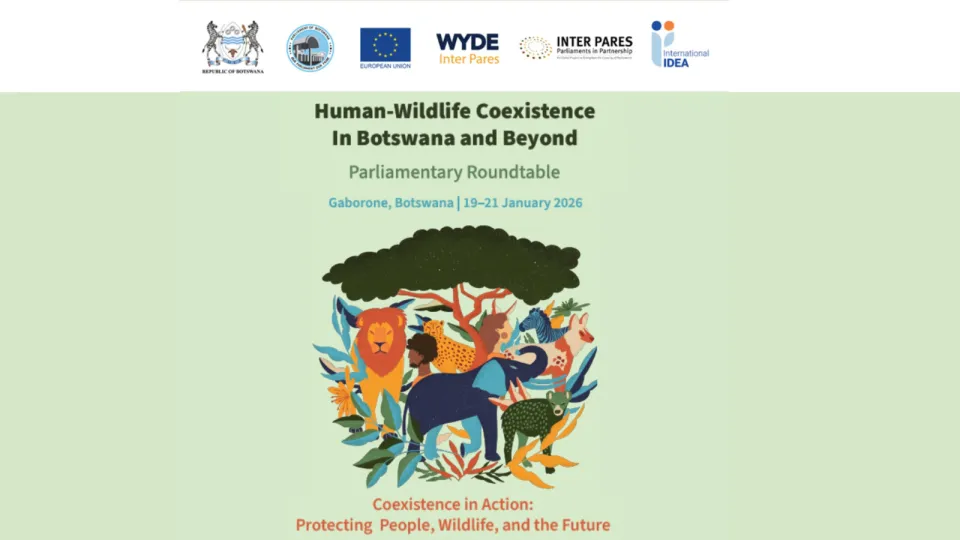Democratic accountability for public service delivery is an important dimension of the post-2015 development agenda.
This conclusion emerged from the ‘Rule of Law, Human Rights and Democracy in the Post-2015 Development Agenda: Sharing Cross-Regional Perspectives on Democratic Accountability in Public Service Delivery’ [Concept Note |Agenda] event.

The panel at the event
This was a side-event to the ‘Contribution of Human Rights and the Rule of Law in the Post-2015 Development Agenda’ high-level meeting convened by the President of the UN General Assembly.
Co-organizers included the Office of the Permanent Observer for International IDEA to the UN with the Permanent Missions of Chile, Morocco, Norway, Peru and Romania to the UN.
UN Member States and agencies came together to discuss pathways through which citizens’ feedback on, assessment of and participation within public service systems could impact sustainable development processes. Ambassador Simona-Mirela Miculescu, Permanent Representative of Romania to the UN, moderated the panel.
Accountability vs Democractic Accountability
Ms Elizabeth Spehar, Director of the Europe Division of the UN Department of Political Affairs, noted the difference between accountability generally conceived and democratic accountability:
Accountability is defined by an obligation to account for one’s activities, reporting and justifying them to an independent entity.
Democratic accountability however, adds factors such as:
- A balance of executive, legislative and judiciary powers in governance
- A fully recognized list of rights for a State’s citizenry
- An informed and involved civil society with the ability to express their needs
- Access by all to information and freedom of speech and assembly
- Inclusive and representative political bodies and effective, responsive public policymaking procedures.
Representatives from Northern Africa, Southeastern Asia and Central America confirmed the importance of democratic accountability for service delivery.
Implications for the post 2015 agenda
Mr Massimo Tommasoli, Permanent Observer for International IDEA to the UN, concluded the panel with a recommendation that partnerships and resources should be discussed when outlining the means of implementation for the post-2015 development agenda. In recognizing the importance of democratic accountability, it is vital to address the role political actors* will play in the implementation of the post 2015 framework now, before it is finalised.
Mr Tommasoli highlighted points taken from the IDEA policy brief ‘Democracy and the post-2015 development agenda: the importance of transparency and accountability in service delivery’ {linked to attached original},
There are two modes of discussing accountability in public service delivery:
- New Public Management approach
- Public services providers and recipients are considered in terms of markets
- Human rights-based approach
- The collective and public good dimension of accountability stands as cornerstone.
International IDEA’s democratic accountability assessment tool is a useful instrument to gauge citizens’ thoughts on delivery of public services across many areas such as health care, education and the provision of welfare.
For more information please contact Stephen Graf at s.graf .
.
Read the full notes on the event
*Actors are defined as public officials, political parties, legislatures, civil society organizations, service providers, and others working alongside governments.



